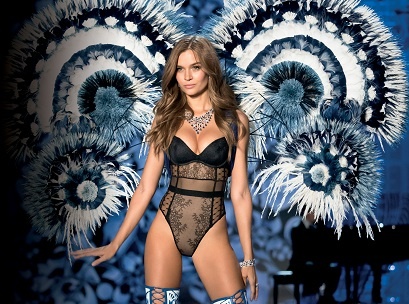GET YOUR EARLY BIRD TICKET TO INSIDE RETAIL LIVE HERE

“Experiential” retail may be an industry buzzword for creating modern physical stores, but now employers are embracing the opportunity to entertain candidates during the recruitment process to reveal their real skills, behaviours and personality traits.
When Valiram Group began looking for Victoria’s Secret staff for the opening of their full assortment store in Chadstone last year, the company launched a teaser campaign on LinkedIn called The Angel Games to create buzz around the event. Candidates were sent personalised invitations and email updates on the store’s progress to get them excited, as though they were attending a glamorous party.
As Valiram talent acquisition manager Mark Lulham explained at Inside Retail Academy in Sydney last week, when candidates entered the store, they were invited to take a photo against a backdrop of a big pair of pink angel wings (“because everyone was an Angel that day”), while loud music pumped in the speakers and videos of the Victoria’s Secret 2018 parade played on TV screens. There were Angel Games banners everywhere and the whole store was fragranced with Victoria’s Secret perfume. Candidates were encouraged to share the photos online with the hashtag, #VSLovesMelbourne
“The mission was to wow every single candidate that came along, to take them on a recruitment process unlike anything they’d ever seen before and challenge the way they think, to entertain them, not knowing what was going to come next, to make them laugh and cry… And have them even more in love with the brand than when they arrived,” said Lulham.
At the event, candidates were encouraged to take part in various games in order to win angel bucks that they could then spend in-store, but more importantly, to demonstrate their skills and personality traits.
“We invented a game where we could see how they behaved in groups and as a team, who dominated, who submitted, who contributed, who hid, how commercial they were, how creative they were, how they dealt with stress. Did they blame or accept responsibility? Did they get flustered or stay on target?” recalled Lulham.
“We created games where we could see their skills and how they behave in-store, how fast they are, how they manage a team, what they did in terms of VM and inventory, theft and conflict. We played with them, engaged them and we got to see the behaviours we wanted and didn’t want to see in-store. The beauty was that we never had to ask a single question.”
Since Victoria’s Secret switched from transactional (or traditional) to experiential recruitment, in the last three years since Lulham joined the company, the talent attrition rate has gone down from 75 to 14 per cent, he said.
Experiential over the transactional
According to Lulham, the “transactional” recruitment process is quite limiting and does not allow for a candidate’s true potential to be seen. The process is often based on how well someone can create the right kind of CV, “or worse, how well an AI robot can read the CV”.
“We’re hiring retailers, not professional CV-writers, and the skills involved to do one are very different to the skills involved to do the other,” he pointed out.
The transactional recruitment process also depends on the quality of the interview questions put forward and whether or not the HR team is able to put aside their own conscious and subconscious biases. Meanwhile, candidates have often heard the same tired questions and have already researched online the best way to answer the trickier questions.
Through experiential recruitment, brands can showcase their own personality and values, while candidates are able to be properly heard by future employers.
“What we’re selling are brands and it’s the ownership of those brands that makes people feel something. We’re not selling goods so much as feelings, which means you can sum up recruitment as humans hiring other humans to sell feelings to other humans,” Lulham said.
“Ultimately what we’re hiring are skills and experience, wrapped up in behaviours and beliefs, attitudes, aptitudes, hopes, dreams, fears, paradigms, stress responses, insecurities, egos – humans. When you’re in the business of selling feelings to strangers, what makes it work is not the transactional, but the experiential.”
As Lulham explained, when your staff are more emotionally invested in your business, it relates to higher performance, resilience, increased retention and loyalty, more cohesive brand advocacy and an increased sense of belonging.
“It’s important we create experiences that drive candidates into stores, not away. We often forget they’re human beings, we just see them as a means to an ends and like all of us, candidates want to feel valued, respected, safe and understood. We took them [our candidates] on an emotional journey, really immersed them in the brand and had them feel like part of the brand,” said Lulham.
“I had four girls cry when I offered them roles as sales associates. That’s how emotionally invested they became in the brand.”





